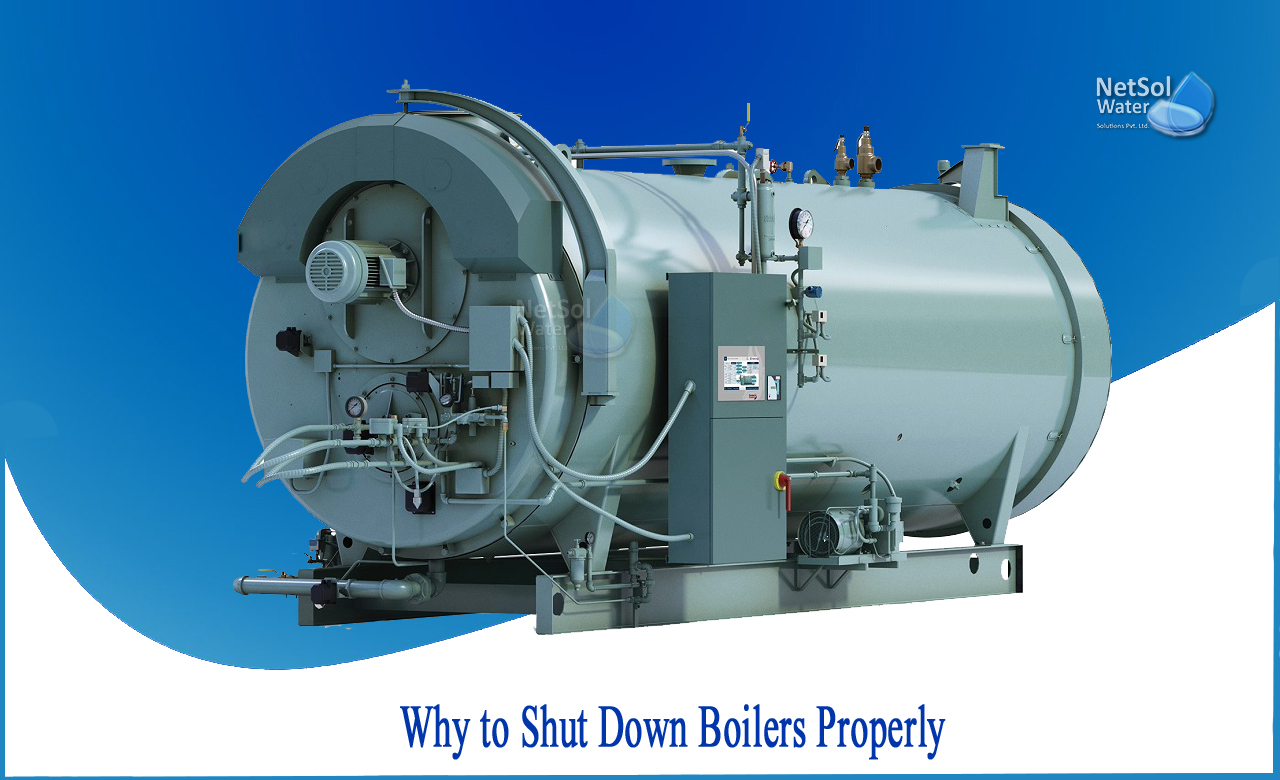How to turn off a boiler properly?
It is critical to properly repair boiler systems and keep them running at full performance. It is critical to understand how to properly shut down a boiler; incorrect shut down can cause serious harm to the boiler. The residual heat in the boiler furnace, when drained hot, can induce warpage of tubes or tube sheets, resulting in leaks and the need for tube rolling. Soft sludge can be baked into scale by the remaining heat. When chilling with cold water, warpage, strain, and leaks might occur.
During out-of-service periods, corrosion can cause significant damage to boilers. When air (21 percent oxygen) comes into touch with damp metal surfaces, idle boilers are extremely vulnerable to attack. To avoid corrosion, the metal of the boiler must be preserved by either keeping the surfaces totally dry or entirely filling the boiler with adequately treated water.
There is no one, complete technique that includes all phases in boiler lay-up due to variances in boiler design. (The mechanical features of the lay-up technique are critical and vary.)
What Is the Best Way to Turn Off My Boiler?
Shut them down by following these easy procedures to guarantee that your equipment lasts as long as possible:
1. For two weeks prior to scheduled shut down, double the regular blowdown rate and raise the sludge conditioner dosage to 1, 1/2 to 2 times normal.
2. Blowdown all blowdown outputs, including headers, multiple times after the boiler has been taken out of operation, making up with hot deaerated feedwater. To remove the boiler from service, follow the manufacturer's instructions. If you use cold water to cool the boiler, you'll get leaks in the rolling joints. Drain the boiler once it is cold enough to go into the furnace.
3. Never remove water from a hot boiler to prevent suspended materials (sludge) in the water from baking on the tubes. Never remove the water from a hot boiler and then dry it out without first cleaning it completely. As soon as the water has drained from the tubes, begin wiping them down. To eliminate any sludge accumulations, flush out all feed and control lines.
4. Using a high-pressure hose, thoroughly clean the water-side surfaces and examine to see if any more cleaning is required prior to lay-up. At the first chance, clear any soot, fly ash, and slag from the fireplace surfaces. On the fireside, these deposits can cause significant corrosion. After cleaning, apply a small layer of oil to the fireside to prevent corrosion.
What products you should use in a Boiler?
For the treatment of boilers against scale, a combination of complex polyphosphates, dispersants, and sludge conditioners should be used in the Boiler Aid line. It precipitates and disperses the sludge for blowdown clearance while also converting the calcium to calcium phosphate.
What advantages you should look for?
Manufacturers should not only provide the best chemicals in the market for reducing corrosion and scale accumulation in boiler systems, but should also provideknowledge that is important in keeping your systems running at top performance.
A wide range of services should be provided, including:
>Site inspections
>Service Management as a Whole
>Chemical-free or chemical-assisted supervisory programmes
>Water treatment for commercial and industrial purposes
Netsol Water is Greater Noida-based leading water & wastewater treatment plant manufacturer. We are industry's most demanding company based on client review and work quality. We are known as best commercial RO plant manufacturers, industrial RO plant manufacturer, sewage treatment plant manufacturer, Water Softener Plant Manufacturers and effluent treatment plant manufacturers. Apart from this 24x7 customer support is our USP. Call on +91-9650608473, or write us at enquiry@netsolwater.com for any support, inquiry or product-purchase related query.



